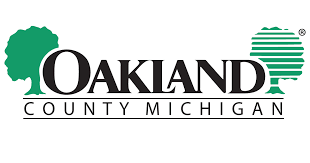
County Aggressively Used Federal Funds
Coulter: County Aggressively Used Federal Funds In 2020 Pandemic Response
Pontiac, Michigan – Oakland County is utilizing all its $219 million received in federal Coronavirus Aid, Relief and Economic Security (CARES) Act funding in support of its pandemic response this year. This included more than $145 million in grants to help stabilize and support small businesses, residents, and communities in every part of the county. The grants have been awarded to more than 15,000 local businesses, which employ 65,000 people; 22 local chambers of commerce; 57 cities, villages, and townships, 278 non-profit and 31 veterans services organizations; 28 local school districts as well as retailers, restaurants, community centers, and more.
“Working with the Board of Commissioners we acted early to support our residents and businesses and never took our foot off the gas to ensure the federal funds received by Oakland County were fully utilized in our pandemic response.” County Executive David Coulter said. “It is vital that these efforts continue in 2021 as the challenge of vaccination delivery and economic recovery remain front and center.”
In 2020, Oakland County was among the most impacted in Michigan by confirmed coronavirus cases. Total confirmed COVID-19 cases exceeded 53,000 in the county with at least 1,468 deaths and more than 40,000 recoveries. The first cases were reported to the county on March 10. Nearly 75 percent of the confirmed positive cases were below the age of 60. About 64 percent of the deaths were 60 years old and above. Fifty-two percent of the positive cases were female while over 53 percent of deaths were male. Oakland County has maintained a dashboard throughout the pandemic and maps of community spread.
The seven-day average for confirmed cases in the first wave reached a high of 296 cases per day on April 6. Over the summer the seven day average hit its lowest point of nine cases per day on June 16. The cases began to surge again in the fall and peaked at a seven-day average of 809 cases per day on November 20. It has trended downward since, currently at a seven-day average of 206 cases per day as of December 29, because most residents and businesses have implemented the safety measures during the State of Michigan’s Pause to Save Lives.
Oakland County’s test positivity rate is down to 8.09 percent as of Christmas week, down from a high of 13.6 percent the week of November 14 – November 20.
“The data show that we are able to better manage the pandemic when people wear masks, avoid large gatherings, wash their hands, and stay home while symptomatic,” Coulter said.
Since the first shipment of 1,950 COVID-19 vaccines arrived at the county from Pfizer-BioNTech in mid-December, more than 800 emergency medical service personnel have received their first dose. The next shipment of doses is expected this week.
Early in the pandemic, there was a shortage of personal protective equipment (PPE). Coulter put out the call for public donations. That combined with the county’s emergency declaration which made purchasing materials more efficient enabled the county’s Emergency Operations Center (EOC) to source PPE from near and far. The EOC acquired over 1.3 million N95/KN95 masks, more than 1 million gowns/lab jackets, 141,000-plus face shields, about 50,000 boxes of medical gloves, and nearly 60,000 boxes of non-medical gloves. The county distributed the PPE to first responders, hospitals, long-term care facilities, local governments, other medical offices, schools, and more. Overall, the EOC responded to 8,000 requests for resources from the county, local government, and other entities.
Oakland County Health Division’s Nurse on Call hotline received nearly 86,000 COVID-related phone calls and over 2,600 COVID-related emails throughout the pandemic in 2020. The Nurse on Call hotline also was the epicenter for scheduling appointments at one of the Health Division’s drive-through testing locations which included Southfield, Pontiac, Novi, and Farmington Hills. The Health Division swabbed more than 31,000 COVID-19 tests at its drive-through testing sites in 2020, which is just over half the total testing the Health Division conducted throughout the county.
Oakland County provided over $770,000 in food assistance beginning early in the pandemic. Programs included a restaurant to shelter food program, support of Lighthouse’s USDA Farmers to Families boxes, supplying meals for healthcare workers and first responders in the hardest hit communities, advising on the Pontiac Restaurant Brigade, cooperative efforts with mycovidresponse.org, and more. From the beginning of the pandemic through June 1, Oakland County fed 700 homeless and at-risk individuals two meals a day. In addition, the county has been providing 200 meals a day at homeless shelters since August.
Oakland County Michigan Works! (OCMW) has received over 475,000 telephone calls and helped resolve over 46,000 unemployment issues. The OCMW team supported 123 companies and organizations with layoff support for their impacted employees. They also held 12 virtual career workshops to help job seekers with their employment searches. In addition, OCMW hosted the first virtual job fair featuring over 50 employers with over 1,000 current job openings.
Despite the pandemic, OCMW continued to launch grant training programs for hundreds of job seekers to earn industry-recognized credentials and transition careers. This includes a $375,000 grant to retrain retail workers, a $405,000 grant to retrain workers impacted by COVID, and a $100,000 grant to create apprenticeship opportunities. Plus, OCMW provided outreach for the State’s Futures for Frontliners program.
The county executive reached thousands of residents via multiple telephone town hall meetings to provide the latest updates about COVID-19. Residents also were able to ask the county’s public health professionals questions. Also, throughout the pandemic, the county executive aired public service announcements connecting residents with county resources. Finally, the county implemented an aggressive marketing campaign called “The only way to beat it is to face it” which leveraged celebrities and influencers to promote wearing masks, social distancing, and washing hands in order to help slow the spread of the virus.
“Oakland County would not have accomplished all of this without the support of the Board of Commissioners, county and local elected officials, residents, businesses, nonprofit organizations, and state and federal partners,” Coulter said. “A special thank you goes to county employees who kept services running throughout the pandemic.”
Below is a summary of CARES Act grants approved by the Oakland County Board of Commissioners and dispersed by the Oakland County Executive. For more details on the grants, click here.
Small Businesses
- $32 Million Grant Fund to assist 3,153 retail, restaurants, and other businesses
- $14 Million Stabilization Fund for 3,500 small business
- $11 Million Michigan Small Business Restart Grant helped nearly 3,000 Oakland County businesses including minority-, women-, and veteran-owned businesses.
- $10 Million Oakland Together Restaurant Relief Program for about 785 restaurants.
- $10 Million Industry 4.0 PPE Resilience Grants Program approved grants for 235 businesses.
- $1 Million to 23 companies who shifted production to personal protective equipment such as masks, gowns, and face shields.
- 15,000 Small Business Reopening Kits which contained PPE.
Government and School Partners
- $29 Million-plus for 57 cities, villages, and townships
- $27.6 Million for 41 school districts and public-school academies
- $3 Million to hire 64 school nurses to work with local school districts.
- $2.8 Million for 52 libraries, senior centers, and community centers
- $1 Million for the Road Commission for Oakland County
- $500,000 each for Oakland University, Oakland Community College and Oakland Schools
- In addition, the county utilized $64 million to ensure county operations were safe for residents and employees, including hazard pay, tele-work capabilities, and social distancing and health screening precautions throughout the county campus.
Community Partners
- $10.7 Million for 88 non-profit organizations to serve vulnerable populations during the pandemic.
- $2 Million-plus to 78 of our Cultural Institutions and organizations
- $2 Million-plus to support 374 childcare providers in Oakland County
- Nearly $2 Million for 126 non-profits hard hit economically
- $600,000 for Oakland County Health Network to purchase tablets to assist clients with telehealth services
- Support for Havenwyck Hospital and Honor Community Health
- $600,000 for 31 veterans service organizations
- Over $2,8 Million to Oakland County Skilled Nursing home facilities
- A $150,000 pilot with American House to offer Echo share devices to connect elderly residents with family members
- A $300,000 pilot with St. Joseph Hospital and Honor Community health to provide childcare for essential workers with school-aged kids.
- $57,000 to local youth assistance programs throughout the county.
Residents
- 6,000 individuals received $750 in a microgrant to help with basic expenses.
- $1 Million in rent, mortgage, and utility assistance for 250 households.
- $1 Million Military Service Fund for Oakland County veterans and dependents
- $215,508 to help support 120 local musicians
- Over 5,000 free meal delivery subscriptions provided to senior citizens.
- Oakland County Michigan Works! launched financial coaching for Oakland County residents in partnership with the Oakland Livingston Human Services Agency. The program has assisted dozens of residents with assessing their financial wellness and meeting their short and long term financial goals.




